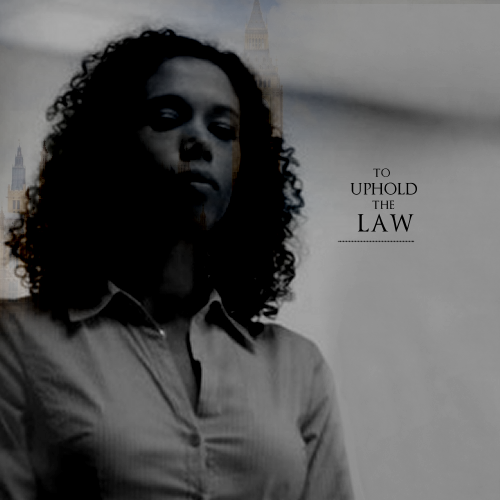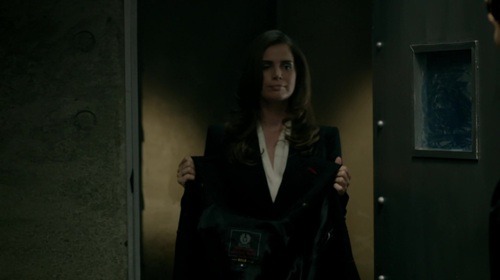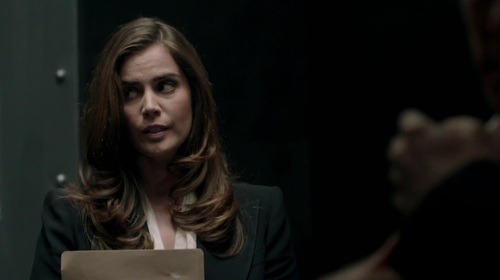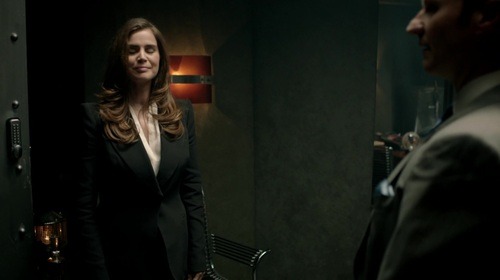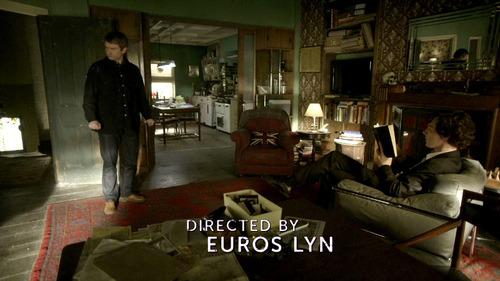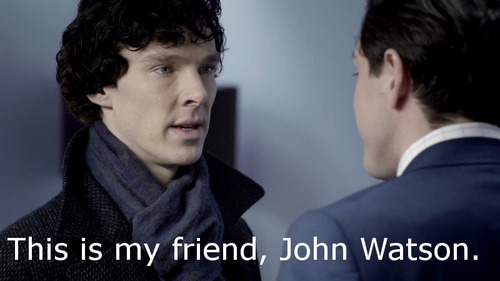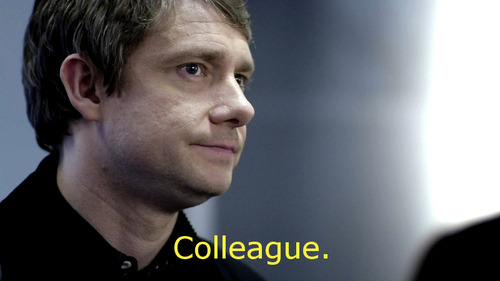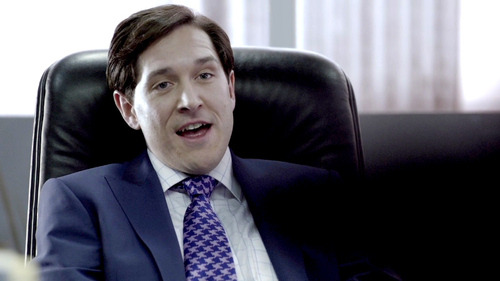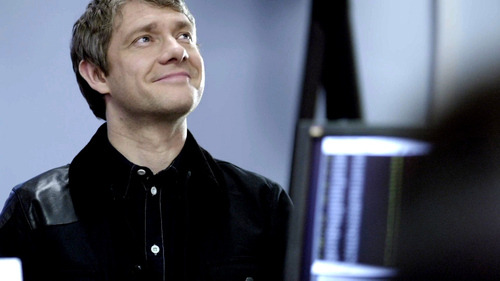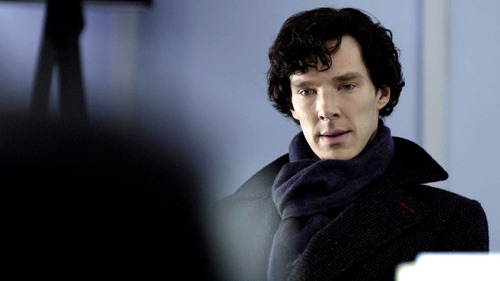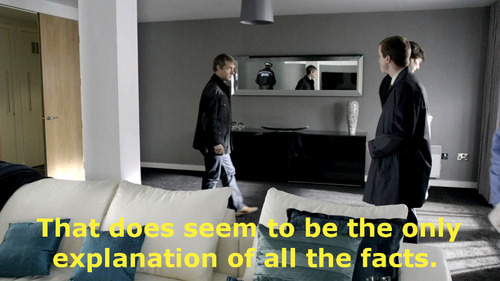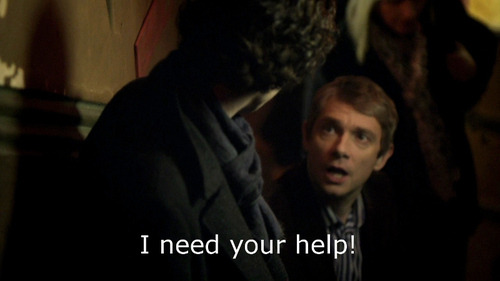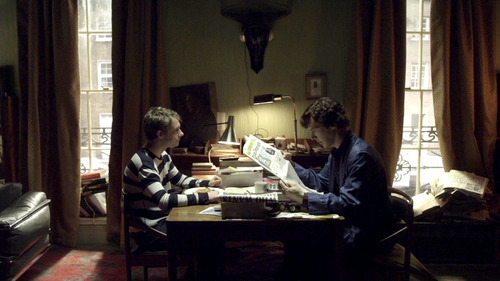1. The Cost of Allowing Someone to Write Your Story: Major Sholto, Sherlock, and The Reichenbach Fall
(Sherlock Meta by stephisanerd)
(Note: Trigger warning— suicide/suicidal intention. Contains spoilers for The Empty Hearse and The Sign of Three. This is my interpretation not only of Sherlock’s interactions with Major Sholto, but of his actions at the end of The Reichenbach Fall, and throughout The Empty Hearse.)
Sherlock: Major Sholto?
Major Sholto: So – I was to be killed by my uniform. How appropriate.
Mary: He solved the case, Major. You’re supposed to open the door now. A deal is a deal.
Major Sholto: I’m not even supposed to have this any more. They gave me special dispensation to keep it. I couldn’t imagine life out of this uniform. I suppose – given the circumstances – I don’t have to. When so many want you dead, it hardly seems good manners to argue.
John: Whatever you’re doing in there, James, stop it, right now. I will kick this door down.
Major Sholto: Mr. Holmes, you and I are similar, I think.
Sherlock: Yes, I think we are.
Major Sholto: There’s a proper time to die, isn’t there?
Sherlock: Of course there is.
Major Sholto: And one should embrace it when it comes – like a soldier.
Sherlock: Of course one should, but not at John’s wedding. We wouldn’t do that, would we – you and me? We would never do that to John Watson.
* * *
A man is standing there, preparing to almost, but not quite, take his own life. It doesn’t require outright suicide—just a decision to let it happen, to embrace the fact that people want him dead and gone. The media and everyone else blame Major Sholto for what happened, for all of his recruits dying, and it has worn him down. People want him dead because of who and what he is. The easiest course would be to go along with it—prove them right and die in disgrace, especially since his very presence puts everyone else in danger. It doesn’t have to happen; it could be prevented, but someone already wrote the story. Why not embrace it?
Does that sound at all familiar? It should. It’s a story we’ve all heard before.
Sherlock: … unless I kill myself – complete your story.
Jim: You’ve gotta admit that’s sexier.
Sherlock: And I die in disgrace.
Jim: Of course. That’s the point of this.
You and I are similar, I think, Major Sholto tells Sherlock. He’s not wrong. Sherlock may not have actually died, but he climbed up onto that ledge. He was believed to be guilty of kidnapping, of staging crimes for himself to solve even by most of the people close to him. When so many want you dead, it hardly seems good manners to argue. It wouldn’t take much to complete the thing, and so he called John—one of the few people left who still believed in him, said his goodbyes and jumped.
We, as the audience, know that it’s not quite what it seems—while John sees senseless suicide, we know that’s he not actually dead and that he ostensibly did it to protect John, Mrs. Hudson and Lestrade. We find out that Mycroft had a plan. Every potential scenario was worked out. While Sherlock had to appear to die, his actions weren’t all necessary. Faking his death in the manner that he did (and everything he did afterward) was a choice. Sherlock accepted Mycroft’s plan and Moriarty’s narrative and let them dictate his actions.
John: Well, probably one of the killers you managed to attract …Jesus. Jesus. She’s dying, Sherlock. Let’s go.
Sherlock: You go. I’m busy.
John: Busy?
Sherlock: Thinking. I need to think.
John: You need to …? Doesn’t she mean anything to you? You once half killed a man because he laid a finger on her.
Sherlock: She’s my landlady.
John: She’s dying …You machine. Sod this. Sod this. You stay here if you want, on your own.
Sherlock: Alone is what I have. Alone protects me.
John: No. Friends protect people.
…
Jim: Your friends will die if you don’t.
Sherlock: John.
Jim: Not just John. Everyone.
Sherlock: Mrs. Hudson.
Jim: Everyone.
Sherlock: Lestrade.
Jim: Three bullets; three gunmen; three victims. There’s no stopping them now.
—
John: Please, this is no time for games. Just let us in! You’re in danger!
Major Sholto: So are you, so long as you’re here. Please, leave me. Despite my reputation, I really don’t approve of collateral damage.
Though the phone-call about Ms. Hudson is a ruse, Sherlock sees the truth in it. He recognizes that John is in danger, so he not only lets him leave, he baits him into doing so. He recognizes now that his clever battle of wits with Moriarty has had far too many casualties and near casualties. All of the crimes Moriarty staged for him, and that he was involved in. The old woman, and the people in that block of flats. John. The kidnapped children. He feels the weight of that. And as he soon finds out, John, Ms. Hudson, and Lestrade all would have been collateral damage in Moriarty’s scheme this time. As long as he is alive, they still might be—Sherlock’s connection to his friends puts them all in danger. It’s all because of who he is. He believes what both he and John say. He believes that alone will protect him, but he also believes that it will protect his friends, and so he finishes the story that Moriarty has written. He calls John, and confesses that he is a fake. Please leave me. I really don’t approve of collateral damage.
With the story now complete, Sherlock jumps. And Sherlock’s version of events, if you accept it to be true or mostly true, reinforces how unnecessary what he does to John is; how unnecessary it all is. He reveals that the sniper trained on John saw the staging of the thing and was invited to reconsider making it deeply debatable whether John needed to see it all happen. (1) Unnecessary. For the plan to work, maybe John still needed to convincingly play the part of the grieving friend, but Molly, Mycroft, Sherlock’s parents, and at least 25 members of Sherlock’s homeless network knew that Sherlock was alive. Unnecessary. Sherlock’s parents didn’t even attend the funeral. If the end game was that everyone needed to believe that Sherlock was dead, why wouldn’t his parents need to visibly play the part as well? Unnecessary. Was there any reason that John really needed to believe that Sherlock was dead when so many others didn’t? Any real reason that John needed to grieve him? (2)
For all that Sherlock may have believed he was doing the right thing, that he was protecting John, he is not adept at judging the emotional cost of his actions. He rarely realizes or cares how his actions affect those around him. He doesn’t recognize the weight of the emotional trauma he occasionally inflicts—he sets up the experiment in the lab in The Hounds of Baskerville to prove a theory, and traumatizes John in the process. (Notably, Sherlock’s behavior at the end of that episode when John confronts him about it is very similar to his behavior in The Empty Hearse when he doesn’t want to tell John why he faked his death or who knew.) He gleefully thanks clients for exciting cases when they’re distraught. He doesn’t understand why someone would be upset about a long ago still-born daughter. A kidnapping is “neat”, a puzzle to be solved, rather than horrifying. He lies, he manipulates, and he almost never realizes or cares when he’s hurting someone. People largely put up with it and he rarely has to face up to the weight or the consequences of his actions.
None of this driven home more clearly then it is at the beginning of The Empty Hearse. Somehow, Sherlock expects to just reappear and go happily back to his old life where he and John live in 221B and solve cases together. It seems completely bizarre to the audience and everyone in universe, but it is very much like Sherlock to not consider the emotional cost of the stunts he pulls. He clearly sees his death as just one more magic trick that people will accept. He gleefully dons an absurd disguise to surprise John after ignoring Mycroft’s warnings that things have changed and it’s possible he won’t be welcome. “You let me grieve. How could you do that?” John asks him. “Do you have any idea what you’ve done to him?” Mary asks. Sherlock suddenly sees the result of his actions and is completely out of his depth as to how to deal with it. He jokes, appeals to John’s love of danger, and tries everything he can think of, but it’s not enough. It’s not even close. “I said I’m sorry. Isn’t that what you’re supposed to do?” he asks an incredulous Mary. He may see the result of his actions, but he doesn’t understand yet. He’s only beginning to comprehend the real weight of what he has done.
Before they can even begin to attempt to deal with it all, John is kidnapped. Sherlock immediately reacts, racing through London, frantically trying to reach his friend in time. As he realizes what’s happening—that John is about to be burned alive—he utters a terrified “Oh my God" and tears off into the crowd screaming John’s name, before throwing himself into the bonfire to pull him out. The scene plays out in much the same way as the climax of The Reichenbach Fall, though this time it’s Sherlock trying to reach his friend in time, Sherlock fighting his way through the crowd, Sherlock standing over John’s body. Sherlock living the scenario from the other side begins to see what it must have been like for John to witness it all.
The next day, John comes over to 221B, and it appears that they are at least on speaking terms. But John meets Sherlock’s parents, realizes that they knew all along, and confronts Sherlock about that fact. Sherlock apologizes again—”Sorry. Sorry again.” He sounds frustrated, defensive, and emotional. He is sorry, but things aren’t okay, even if John is talking to him and willing to work with him on a case. It’s not enough, for either of them, and he knows that.
It’s not until he apologizes in the train car that he even begins to get close. “I’m sorry. I can’t…I can’t do it, John. I don’t know how. Forgive me. Please, John, forgive me, for all the hurt I caused you." (3) He understand now that his actions have had consequences. He recognizes that there is nothing he can do to fix any of it. He can’t undo it; he can’t change it. Nothing will erase John’s grief or anger. He’s not offering excuses or explanations. He’s begging for mercy and John’s forgiveness, when it comes, appears to take Sherlock completely by surprise, because he’s still missing a piece of the puzzle. He still doesn’t quite see the weight of it all.
Continued here.
——-
Transcript excerpts from here.
1. Whether that’s euphemism for “bought off” or “got a bullet in the brain”, I’m not even going to touch. I know there’s a discrepancy between what we see in TRF and TEH, but that point aside, it’s still likely that whatever the plan actually involved, whoever was aiming at John would have been stopped.
2. If you’re curious about my personal interpretation, I’d still argue that Sherlock’s goodbye to John was genuine. For all the planning, jumping off a roof is dangerous, even if you plan to survive. Sherlock very well could have died. And even though it may not have been necessary, leaving John in the dark appeared to have been difficult for Sherlock. I think he did intend to tell him, but much like John and Ms. Hudson, it just got harder for him to get in touch, somehow. He even nearly says it himself “I’ve nearly been in contact so many times, but…” before changing his mind and suggesting that John might have been indiscreet.
3. I realize it’s a YMMV thing, but I’m operating here under the assumption that Sherlock, while clearly being an ass, is making a genuine apology for what he’s done to John over the past two years and not apologizing for the bomb that he has already disabled. I also recognize that Sherlock has manipulated John so that he’s in a position where he’ll want to accept the apology, but I don’t think it actually occurs to Sherlock that John might really completely forgive him. More thoughts on that here. I’m willing to suspend my disbelief for this, because I think it works in-universe, and I really do believe that’s what we’re supposed to take from the scene. But again, YMMV.
![So, today I’m going to push my natural vocation to play Devil’s advocate to new and unprecedented extremes - so be warned!
Now, I have to make some preliminary remarks.
If you’re masochist enough to have been reading my ramblings for some time, you perfectly know what my opinion about Sherlock’s and John’s relationship is: I stick to the Canon, and I am firmly persuaded that both canonical Homes and Watson, AND modern Sherlock and John, are the very epitome of what a true friendship is. This is one of the two main reasons that have glued me to Sherlock Holmes since I was a child - because I’m lucky enough to know this kind of friendship (and also to know what life without this kind of friendship is), and value it above anything else, and I’m always deeply moved when I see it so well portraied in cinema or literature.
No argument could ever (and, I presume, will ever be able to) persuade me that there is or could ever be any kind of “romantic” relationship between our two heroes - by which I don’t mean that they don’t love each other deeply: friendship IS love, and, according to me, in its more selfless and noble form.Not even the alleged (I’ve read may opinions in this sense) “exclusive” nature of John’s and Sherlock’s relationship could persuade me differently: actually, I don’t see their relationship as being so terribly exclusive, considered that John has as many girlfriends as he wants (Sherlock being a hell of a best friend to introduce them to being irrelevant, considered that this is just part of Sherlock’s annoying attitude towards mankind in general… And John’s inability to keep a girlfriend for more than eight months - this is more or less the duration of his relationship with Sarah, as we might deduce from his blog - has more to do with his personal inability to concentrate his efforts on women who appear to be “right” for him, instead of throwing himself at any good-looking and breathing thing in a skirt he casts his eyes upon, than with any “interference” on Sherlock’s part…). John also goes out with his “friends” (I would use more correct expressions, such as “significant human interactions”, but I suppose they would sound quite strange, or even rude… maybe we might call them “buddies”, however) as he pleases (in ASiB we are told that he spends the occasional evening with Mike Stamford, for example, and he and Lestrade are on first name terms, so presumably they frequent each other socially, every now and then…), and Sherlock not going with him, again, has more to do with Sherlock’s scornful attitude towards “ordinary people” and “ordinary life” and “ordinary fun” (because they are “BORING”…), than with any form of possessiveness towards John.Even when, on Christmas Eve, in ASiB, Sherlock - according to Molly - “complains” about John’s decision to spend Christmas Day with his sister, I’m under the impression that he is more annoyed by the fact that John is going to voluntarily place himself (again, we might presume) in a situation in which - according to Sherlock - he’ll end up being disappointed and hurt again by his sister’s inability to really quit drinking, than by the fact that John won’t be with him on Christmas Day per se.
More generally, as I’ve already observed in some private conversations, a certain “exclusiveness” we might find in Sherlock’s and John’s friendship is basically due to the extreme rarity of this kind of true friendship: the vast majority of people don’t know more than one or two friendships of this kind during their whole lives, and not always simultaneously (and there are many people who are not so lucky as to experience this kind of friendship at all…). Only the luckiest amongst the lucky are blessed with many true friendship.Currently, neither Sherlock, NOR John, have any other friend of this kind. So it’s perfectly logical that the bond that links them is stronger than any other relationship with other “acquaintances” they might have. And it would remain as much strong even in case one of them were lucky enough to find another person whom he’ll be able to consider a “true friend” (which would be, of course, even harder than for many people, as both Sherlock AND John appear to be extremely private and selective persons), or even when John will get - as Canon prescribes - married with Mary Morstan (around Series 4, according to me).
This kind of friendship simply is different - and complementary - to any other kind of love bond a human being can experience in his/her life.
This is my unfaltering persuasion.
And yet… - AND YET!
As I’ve told at the beginning of this long rambling, I can’t resist the temptation to play Devil’s advocate, even against myself - no, better: PARTICULARLY against myself!
And so: were I looking for evidence to support a “Johnlock theory”, I wouldn’t use feeble arguments such as “Sherlock follows John everywere”, or “Sherlock boycotts John’s dates”, or the like…No, I would draw your attention to a very little, and yet very suggestive, fact.
At the beginning of ASiB we see the unnamed client of Sherlock entering the flat and giving Mrs. Hudson a fright by fainting in Sherlock’s and John’s kitchen.And it is at this moment that Mrs. Hudon raises her head and, looking towards the second floor, where John’s room is, yells: “Boys! You’ve got anoter one!”
So, now the intriguing question is: what were John AND SHERLOCK doing together in JOHN’S room, considering that John always keeps his computer, his bills, his… everything but clothes and very personal objects, we might presume, in the living area of the flat? And considering also that John appears to spend all his spare time in the living room, and so does Sherlock…
Were they looking at John’s collection of stamps?
Well, I’d say that there is, at least, some ground for speculation, here…
[Now, returning to my usual self, some plausible alternative explanations of Mrs. Hudson’s gesture:
Mrs. Hudson just suffers from arthrosis.
On the second floor there is not only John’s room, but also the box room where all past cases - and related relics - are filed, and Sherlock and John where actually fighting their way through that mess, in order to retrieve some document or object of significance for a new case.
John and Sherlock were not on the second floor, but on the roof: Sherlock wanted to hide from an unespected call from Mycroft, and just dragged John with him to better annoy his brother, as he then found an empty flat to greet him.
…Or any other explanation to the same effect you might like.]](http://31.media.tumblr.com/tumblr_mdnp8aFEKh1rpohelo1_500.png)


